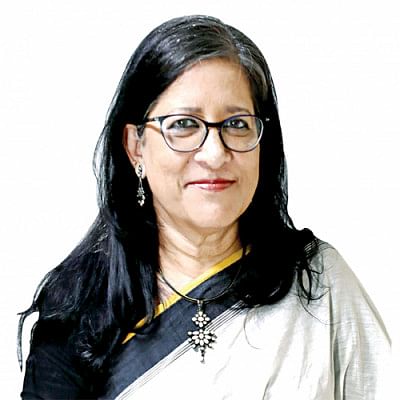‘We need to foster policy literacy in young people’

What has been the impact of the COVID-19 pandemic on young people in education?
There is no one "young people". In this country, we have young people from various backgrounds, rural and urban, as well as varied economic conditions. Many students have tried to earn a livelihood by undertaking tutoring or part-time jobs with the intent to support their educational expenses. In present circumstances, such sources of income are no longer available due to the pandemic and lockdown. University students in particular have been impacted negatively as a result and found it difficult to afford accommodation. Students who were required to support their families using their income from part-time jobs, are struggling to do so, thus families are suffering economically.
Young people are now finding it difficult to continue their education. This is partially due to the digital divide. With the closure of educational institutions, students have experienced multiple challenges and this is manifested in loss of learning and skills development. The impact is not the same for female and male students as the gender discrimination sets in. During the pandemic, female students have mentioned being affected by domestic violence and early marriage. Researchers have highlighted evidence of the rise in child marriage across the country. These research initiatives were taken by ActionAid and other similar organisations. There is also the issue of mental health and wellbeing. Most of us have, in some way or the other, been affected mentally in the last 18 months due to the loss of loved ones to COVID-19 and uncertainties in all aspects of our lives. Young people in particular have been severely impacted by such uncertainties.
What could be solutions to these issues plaguing students?
Online education curriculum in Bangladesh should be reviewed and geared towards practical sessions and applied learning. There is a need for more quality and creative learning. There is also the need for market-oriented skills development to help open up more income-generating opportunities for young people.
I think it is essential that both the government and the private sector design programmes for mental health such as dealing with trauma, depression, anger, etc. Sessions should be available to help young people adapt and learn to co-exist with COVID-19. Online exercise, yoga, singing, art and overall creative sessions should also be encouraged to help deal with mental health issues.
We should create space for young people to discuss their issues and rights, and engage in advocacy and campaigning. That would require them to apply their minds and engage with a cause. Issues like climate justice, gender discrimination, lack of inclusion etc., could be causes that we can work on with young people.
Lastly, we need stimulus packages for young people. These should be targeted packages for students so that they can continue education and also contribute financially to the family.
How can more young people be mobilised to fight for important causes?
We must listen to young people about their issues. We know the generic problems, but discussion should be contextualised according to the grounded realities of the young people so as to develop plans and allocate resources accordingly. If one is living in a village, Upazila or Union, the issues may be different from those living in urban spaces. If we mobilise young people to take up the issues, they can relate to it and be passionate about it.
The challenge lies in organising because we have reached a state where we feel that nothing works. To combat this, we need to put out more positive stories. The media can talk about the successes of initiatives taken at the local or national level.
There are also many generic issues where young people can mobilise other young people, such as skills development, employment opportunities, gender-based violence, safe cities, etc. If these issues are part of national or local campaigns, many young people can be mobilised.
How can the youth be empowered to become decision-makers within our policy framework?
Platforms can be created by both the government and non-government actors where young people can participate meaningfully. It could even be informal discussions where they can come and speak without fear of judgement. The government now puts policy documents online and asks for comments. Young people who are digitally savvy and understand policies need to be alert and ensure that they contribute.
We need to foster policy literacy in young people. Although they can voice their opinions, they perhaps can't speak in the policy language. We can help them share their concerns and solutions they think would be effective and package them for policymakers. First, we need to take some policies that impact young people and unpack and demystify them. Young people who are policy literate should then take the simplified policies to the relevant young people, get their ideas and bring them back to us. It's a two-way process.
One question that arises is, once you have learned and understood the policy and developed a view about it, who do you speak to? We can use organisations like ours to bring together different actors and facilitate. The media can play a role by doing features and webinars where these issues are reflected and spoken on. We have already facilitated direct conversations between policymakers, legislators and young people and found that some aspects of the young peoples' opinions are reflected in our annual national plans.
The author is Junior Executive, Commercial Supplements, The Daily Star.

 For all latest news, follow The Daily Star's Google News channel.
For all latest news, follow The Daily Star's Google News channel. 



Comments